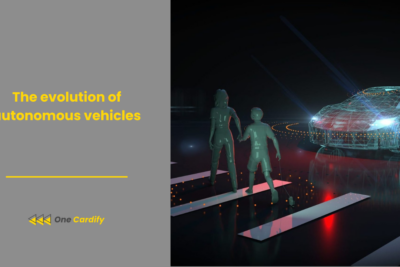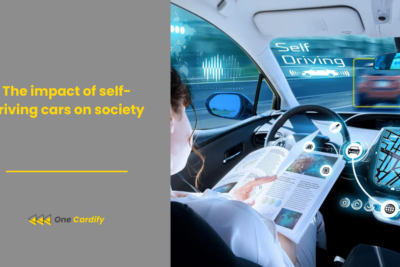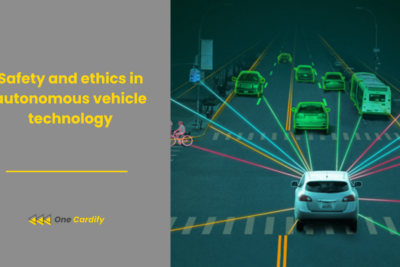
AI's role in personalized medicine
AI in personalized medicine is one of the most promising transformative changes in the fast-growing healthcare area. This synergy is supposed to maximize patient care by adjusting therapies to individual genetic characteristics, lifestyle, and environment, thus pushing the level of healthcare to a new dimension.This sector represents the future of treatment customization where AI in a variety of ways, and examining such plethora of ‘contributions’ provides a sneak peek. Ranging from predictive analytics through advanced imaging, AI marks the boundary of personalized patient care, transforming diagnostics, treatment plans, and disease management.In this section that details the intricacies of AI in personalized medicine, we will reveal the pivotal shifts that are brought by this technology offering better diagnostic accuracy, therapeutic efficiency, and patient outcomes.
The Genesis of Personalized Care through AI
The emergence of personalized medicine enabled by AI heralds changes in the old-fashioned one-size-fits-all method of healthcare. Artificial intelligence algorithms analyze big data sets to detect patterns and predict results, designing treatment regimens according to each individual’s personal health profile.The genomics, which is investigation of an individual’s DNA, has been substantially supported by AI in identifying genetic mutations and their effect on health. Such genetic information would provide the basis for the formulation of personalized therapeutic approaches, aimed at the exact molecular basis of the disease.The lifestyle and environmental factors are vital to the health of a person. The power of AI to filter and analyze lifestyle information from wearable devices as well as environmental data adds more personal touch to healthcare thus providing accurate and efficient treatment plans.The whole revolution is based on machine learning models that learn all the time and become better, so personalized medicine advances together with AI progress.
Related content
Related content
Disruptive Diagnostics: AI's Precision Tool
The diagnostic processes have greatly been perfected with the introduction of AI, providing benchmarks previously unachievable. Modern imaging technologies like MRI and CT scans are now more precise and quicker since AI-based algorithms can detect the anomalies with outstanding accuracy.AI forecasts disease development using predictive analytics, which is a vital insight that informs intervention strategies. Such a foresight helps to implement the therapy in time and in most cases to change the course of the disease to the better.Beside imaging, AI does a marvelous job when it comes to biochemical markers from blood tests, detecting early signs of diseases like cancer, even before symptoms develop. Early detection is crucial to increasing the survival rate and patient outcomes.These innovations converge in the diagnostic zone that represents precision, productivity, and foresight, thus establishing a new diagnostic and management environment.
Customized Treatment Plans: The AI Advantage
The essence of personalized medicine is a personalized treatment regimen, individually tailored to the unique health profile of each patient. This customization is further enhanced by AI’s ability to forecast how different treatments will work in the patient’s body, thus reducing trial and error while increasing efficacy.The role of AI algorithms in oncology is to help to design chemotherapy regimens tailored to the genetic characteristics of the patient’s cancer cells, which are less toxic and more efficient. Likewise, in chronic disease management, AI tools make the real time adjustments to the dosage of the medication based on the continuous health monitoring which significantly improves the quality of life.The granularity of AI-based management is also exaggerated by preventive medicine, where predictive characteristics can provide personalized lifestyle, nutrition advice based on the genetic tendency so as to deter the appearance of the disease.Such personalized manner is also associated with decreased frequency of side effects and adverse events, thus transforming the entire therapeutic as a patient-centered process.
Challenges and Ethical Considerations
Although AI incorporation into personalized medicine sets a new vista in health care, it has its own issues. The most predominant concerns for data security and privacy coincide with the sensitivity of genetic and health information.In addition, AI algorithms bias potential as a result of unrepresentative training data is a big risk of unequal care. The importance of diversity in data and overcoming these biases is vital in fairness in healthcare provision.Furthermore, ethical issues start to appear with regard to genetic discrimination by insurers or employers, thus law regulations that would protect the rights of individuals with regard to their genetic information need to be developed.Directly confronting these challenges is paramount for the effectual and equitable utilization of AI in promoting personalized healthcare results.
Looking to the Future: AI’s Expanding Horizon in Healthcare
Looking ahead, the capacity of AI to make personalized medicine completely different is unlimited. The road of AI in healthcare starts from the improvement of diagnostic tools to the reinforcement of treatment protocols and so on.The emerging technologies like quantum computing promise to unleash more computation possibilities, and this may shift the paradigm in drug discovery and genetic research.The use of AI in the management and analysis of electronic health records (EHRs) will be of growing importance, providing a comprehensive overview of a patient’s health history and individualizing care to levels never before possible.The integration of AI with telemedicine and mHealth apps is a beginning of a world where healthcare is personalized and even more accessible, bridging geographic and socioeconomic divides.In short, AI plays a central role in the building of personalized medicine pioneering initiatives that are set to transform the course of healthcare delivery. The potential of personalize, predict, and prevent is an indication of a future that is not only a reactive healthcare but proactive, personalized and transformative.
Personalized medicine is an approach that tailors medical treatment to the individual characteristics of each patient, considering genetic, environmental, and lifestyle factors.
AI enhances diagnostics by providing precision in imaging, predicting disease progression, and identifying early disease markers through advanced analytics, thereby enabling timely and targeted interventions.
Yes, AI predicts how patients will respond to various treatments, helping healthcare providers to select the most effective therapy with minimal side effects, thus reducing trial and error in treatment plans.
Challenges include data privacy concerns, the potential for bias in AI algorithms, and ethical questions around genetic discrimination, necessitating transparent and equitable solutions.
AI promises to revolutionize healthcare by enhancing diagnostic tools, creating more effective treatment plans, improving disease management, and making healthcare more accessible through telemedicine and mobile health apps.
In chronic disease management, AI adjusts medication dosages in real-time based on health monitoring and manages symptoms, vastly improving patients' quality of life.
AI's predictive tools in preventive medicine offer personalized lifestyle and nutrition advice, aiming to prevent diseases based on individual genetic predispositions, ultimately shifting healthcare from reactive to proactive.
Concluding Thoughts on Artificial Intelligence in Personalized Medicine
Artificial intelligence revolutionizing personalized medicine is not just a fad but a fundamental change in the way healthcare is practiced. Through the consideration of individual health profiles, AI improves patient care, thus, opening a door for a future when treatments will be not only customized but also radical.It is critical that the collaboration between healthcare professionals and AI specialists be strengthened as we journey through these new waters, and ensure that the potential of this technology is realized in an ethical, equitable, and effective manner.Under the artificial intelligence, personal medicine becomes functional and hence will revolutionize healthcare and its patients in general.Every progress leads us to a time when healthcare is not only about curing diseases but stopping them in a way that is as individual as DNA that sets us apart.






Related Posts